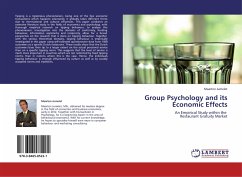Tipping is a mysterious phenomenon, being one of the few economic transactions which happens voluntarily, it globally takes different forms due to international and cultural influences. This paper combines an extensive literature study in the fields of economics and psychology, with thorough empirical research on tipping behaviour, to analyse this phenomenon. Investigation into the domains of conformity, herding behaviour, information asymmetry and reciprocity, allow for a broad perspective on the research that is done on tipping behaviour. Together with the various theoretical domains, tipping behaviour is empirically investigated in this paper using self-collected questionnaire data from 1000 customers at a specific Dutch restaurant. These results show that the Dutch customers base their tip to a larger extent on the actual perceived service than on a specific tipping norm. This suggests that the level of service is much more important in countries which are not restricted by fixed tipping norms, than in nations where this is the case. Hence, the individuals tipping behaviour is strongly influenced by culture as well as by socially accepted norms and traditions.
Bitte wählen Sie Ihr Anliegen aus.
Rechnungen
Retourenschein anfordern
Bestellstatus
Storno








